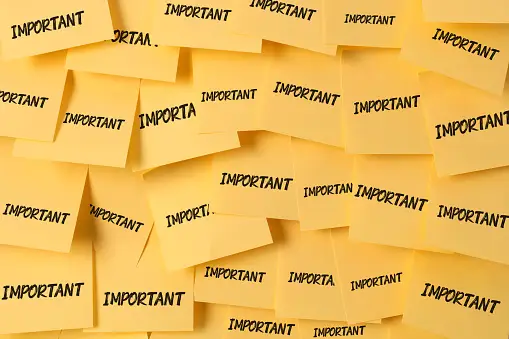Mastering new vocabulary can be both exciting and challenging. Whether you’re learning a new language, studying for an exam, or simply looking to expand your knowledge, effective techniques can help you memorize Chinese words and learn new terms quickly. In this guide, we’ll explore various strategies and tips to help you achieve your vocabulary goals efficiently.
Understanding the Importance of Vocabulary Mastery
Before diving into methods for mastering vocabulary, it’s crucial to understand why it’s important. A strong vocabulary foundation enhances your communication skills, improves comprehension, and boosts confidence in both written and spoken language. For learners of Chinese, for example, expanding your vocabulary can help you better understand and engage with the language on a deeper level.
Setting Clear Vocabulary Learning Goals
To master new vocabulary, you need to start with clear, achievable goals. Decide how many words you want to learn each week or month. Break your goals into smaller, manageable chunks. For instance, you might aim to memorize Chinese words for five new terms each day. Setting specific goals helps maintain focus and track your progress.
Creating a Study Plan
A well-structured study plan is essential for efficient vocabulary learning. Your plan should include dedicated time slots for learning and reviewing new words. Consistency is key, so try to stick to your schedule as closely as possible. Your study plan might look something like this:
- Monday: Learn 5 new words
- Tuesday: Review Monday’s words and learn 5 new words
- Wednesday: Review Monday and Tuesday’s words, and learn 5 new words
- Thursday: Review words from earlier in the week and learn 5 new words
- Friday: Continue reviewing and learn 5 new words
- Saturday: Comprehensive review of the week’s vocabulary
- Sunday: Rest or catch up on missed work
Using Flashcards for Effective Learning
Flashcards are a popular and effective tool for vocabulary learning. They can be physical cards or digital ones using apps like Anki or Quizlet. Create flashcards with the target word on one side and the definition, pronunciation, and example sentence on the other. Regularly review these flashcards to reinforce your memory.
Tips for Effective Flashcard Use
- Include Images: Adding pictures to your flashcards can help reinforce the meaning of the word.
- Add Example Sentences: Contextual examples make it easier to remember how the word is used.
- Review Regularly: Use the spaced repetition method to review flashcards at increasing intervals.
Practicing Vocabulary with Contextual Learning
Sliding words into your daily life helps you practice vocabulary in context. Instead of memorizing words in isolation, use them in sentences, write short paragraphs, or engage in conversations. This method reinforces your learning and helps you understand how words are used in real situations.
How to Practice Vocabulary in Context
- Read Extensively: Read books, articles, and blogs in the target language. Pay attention to new words and their usage.
- Write Regularly: Keep a journal or write essays using new vocabulary. This practice helps cement your understanding.
- Speak and Listen: Engage in conversations with native speakers or language partners. Listening to and speaking the language helps reinforce new vocabulary.
Leveraging Technology for Vocabulary Learning
Technology offers numerous tools and resources for mastering vocabulary. Here are some of the best ways to use technology to your advantage:
- Language Learning Apps: Apps like Duolingo, Babbel, or Memrise offer structured vocabulary lessons and practice.
- Online Dictionaries and Thesauruses: Websites like Merriam-Webster or Oxford Dictionaries can help you understand new words and find synonyms.
- Language Exchange Platforms: Sites like Tandem or HelloTalk connect you with native speakers for language exchange practice.
Engaging with Language Learning Communities
Joining language learning communities can provide motivation and support. Engage with online forums, social media groups, or local meetups where you can practice vocabulary with others. These communities offer opportunities to ask questions, share resources, and participate in language-related activities.
Benefits of Language Learning Communities
- Support and Motivation: Interact with others who share your learning goals.
- Resource Sharing: Discover new tools, apps, and methods for vocabulary acquisition.
- Practice Opportunities: Participate in discussions, language challenges, and group study sessions.
Applying Memory Techniques for Better Retention
Memory techniques can enhance your ability to memorize Chinese words and other vocabulary. Here are some effective memory techniques:
Mnemonics
Create associations between new words and familiar concepts. For example, associate the Chinese word for “apple” (苹果, píngguǒ) with an image of an apple.
Visualization
Visualize the meaning of the word. Imagine a scene or object that represents the word to make it more memorable.
Chunking
Break down complex words or lists into smaller chunks. For instance, learn a few words at a time rather than trying to memorize an entire list at once.
Testing Yourself to Track Progress
Regular self-testing is a great way to measure your progress and identify areas for improvement. Create quizzes or use apps that offer vocabulary tests. Self-assessment helps you see how well you’ve learned new words and highlights which ones need more practice.
Types of Vocabulary Tests
- Flashcard Quizzes: Test your recall of the words and their meanings.
- Fill-in-the-Blanks: Complete sentences with the correct vocabulary words.
- Matching Exercises: Match words with their definitions or example sentences.
Adjusting Your Strategies as You Progress
As you advance in your vocabulary learning journey, it’s important to evaluate and adjust your strategies. Reflect on what methods are working and which ones aren’t. Be open to trying new techniques or modifying your study plan to better meet your goals.
How to Adjust Your Learning Strategies
- Analyze Results: Look at your quiz scores and review sessions to see what needs more attention.
- Experiment with Techniques: Try different methods like using language games or attending workshops.
- Seek Feedback: Ask teachers, tutors, or language partners for advice on improving your vocabulary skills.
Balancing Vocabulary Learning with Other Language Skills
While mastering vocabulary is essential, it’s also important to balance it with other language skills like reading, writing, speaking, and listening. A well-rounded approach ensures that you can effectively use the new words you’ve learned.
Integrating Vocabulary with Other Skills
- Combine Skills: Use new vocabulary in your reading, writing, speaking, and listening activities.
- Practice in Different Contexts: Apply words in various situations to deepen your understanding.
- Seek Comprehensive Learning: Engage in activities that enhance all aspects of language acquisition.
Conclusion
Mastering new vocabulary quickly requires a combination of effective strategies and consistent practice. By setting clear goals, creating a structured study plan, using tools like flashcards, and practicing in context, you can accelerate your learning process. Embrace technology, engage with language communities, and apply memory techniques to enhance your vocabulary skills. Remember to balance your vocabulary learning with other language skills and adjust your strategies as needed. With dedication and the right approach, you’ll be well on your way to mastering new vocabulary and achieving your language learning objectives.
Additional Resources
Here are some additional resources to help you on your vocabulary learning journey:
- Books: “Word Power Made Easy” by Norman Lewis
- Apps: Anki, Quizlet, Memrise
- Websites: Duolingo, Babbel, Oxford Dictionaries
- Communities: Reddit’s r/languagelearning, language exchange groups on Facebook
Use these resources to supplement your learning and stay motivated as you work towards mastering new vocabulary.






